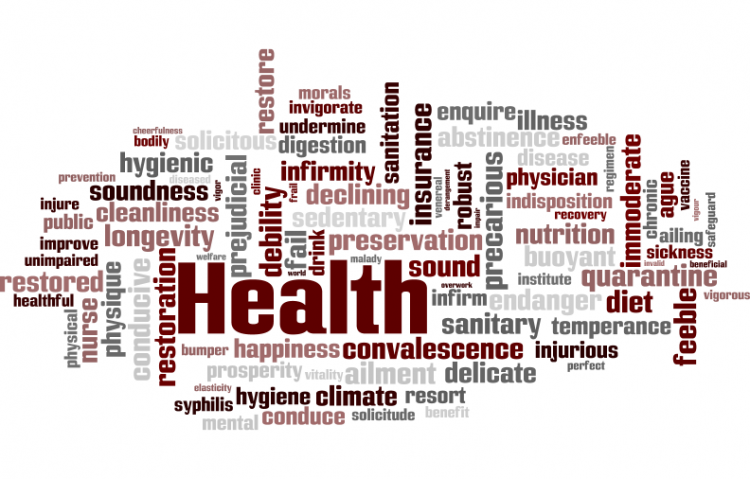PATIENTS' PETITION FOR BETTER DIAGNOSIS AND MANAGEMENT OF THYROID AND THYROID RELATED PROBLEMS
- Sheila Turner
- Closed on

- Target:
- The Scottish Parliament
- Region:
- United Kingdom
- Website:
- www.tpauk.com
Thank you to all the members of the Thyroid Patient Advocacy Internet Forum who have supported this petition, which was first published 16 February 2013. This supporting petition has now closed 14 April 2013. We have passed the signatures and patients individual stories (402) to the Petitions Committee of the Scottish Parliament in support of 'Petition PE01463: Effective thyroid and adrenal testing, diagnosis and treatment', so that they can be taken into account, along with the 11 Written Submissions, plus further supporting petitions from Thyroid Advocates, together with letters/emails from doctors and researchers who have presented evidence and the many, many patients from around the world, who have told their personal stories regarding their experiences with the present mainstream diagnosing and treatment protocol. We will keep all our members informed of progress after the meeting on Tuesday, 16 April 2013 at the Scottish Parliament, after a decision has been made by MSPs as to whether they feel they have sufficient evidence to now urge the Scottish Government to take whatever action they feel is necessary.
Many thanks to each and every one of you for such great support.
Sheila
Some of the background to this thyroid mess is a lack of proper definition of the word 'hypothyroidism'. When a patient is suffering symptoms, more than likely they do have (in the proper sense of the word) 'hypothyroidism' i.e. 'deficient secretion of hormone by the thyroid gland' and is usually treated successfully with synthetic thyroxine (T4).
But what endocrinology is failing to recognise are those who have similar symptoms, with normal thyroid function test results and who are suffering from failure of peripheral utilisation of thyroid hormone. These patients need a different diagnosis and a different thyroid hormone therapy, i.e. a combination of synthetic T4 and tri-iodothyronine (T3), T3 or natural desiccated thyroid extract (NDT) should be considered. (NDT was the only treatment for all sufferers of hypothyroid symptoms, prior to the introduction of synthetic T4–only therapy). Many patients using a T3 containing product are reporting a resolution of all the problems encountered whilst on T4-only.
This has been known about for half a century, yet endocrinology refuses to acknowledge it. Consequently, around 250,000 citizens in the UK alone (potentially millions world wide) are misdiagnosed and mis-treated.
Our experience and clinical presentation of the failure of T4-only therapy to relieve our symptoms for all sufferers has been repeatedly dismissed or ignored by doctors, who often attribute our continuing symptoms to a "somatoform disorder".
We recommend the following safety guidelines where the combination of synthetic T4/T3 or NDT are used, and in the following order:
1. -to screen patients with thyroid deficiency for low adrenal reserve (adrenal fatigue), a condition that may be more common than generally expected. Patients with weak adrenals may have difficulty tolerating the dose of thyroid hormone they need, and may experience "hyperthyroid" symptoms, even at low doses. In other patients with adrenal fatigue the problem may be the opposite: the patient may remain hypothyroid even at higher doses of thyroid hormones. Thyroid hormones can not be normally used by the cells and may instead build up too high in serum, leading doctor and patient to believe that a particular dose is too high and that the treatment doesn't work. The solution to both problems is to treat adrenal fatigue, prior to thyroid therapy, or simultaneously.
2. -to use the following laboratory tests as a guide in the assessment and treatment of those with hypothyroid symptoms: TSH, free T4, free T3, TPO and Tg Antibodies.
3. -to start the combination therapy at a safe low dose of synthetic T4/T3 or, if NDT is prescribed, familiarise themselves with the effects of combined therapy and prescribe a safe dose, e.g. 15mgs of NDT for patients with adrenal fatigue, or 30 to 60mgs otherwise, and to adjust the dose according to our clinical needs.
4. -to listen and give more credence to patients’ subjective reports of symptom continuance or resolution, rather than make laboratory results the sole guide in dosing.
We advocate that medical practitioners should have freedom of choice in prescribing T4 alone, combined synthetic T4/T3, T3 or NDT, without incurring the wrath of the mainstream establishment.
In conclusion, we strongly recommend that the selection of treatment, whether by synthetic or natural preparations, should be a matter for the patient and the doctor together, both having freedom of choice in this matter.
We, the undersigned, call on the Scottish Parliament to urge the Scottish Government to:
• ensure sufferers of hypothyroid symptoms are given an accurate clinical examination, diagnosis, and appropriate treatment, with tests to discover failure of peripheral utilisation of thyroid hormone,
• review the present teaching curriculum and issue new guidelines on the diagnosis and management of primary hypothyroidism and euthyroid hypometabolism,
• urge doctors to address the misconceptions that natural thyroid extract (NDT) is inconsistent, dangerous, unreliable and/or outdated, and recognise that NDT products such as Armour Thyroid®, Westhroid®, Nature-Throid® and Erfa Thyroid® meet the stringent guidelines laid down by the United States Pharmacopoeia (USP), and the Food and Drug Administration (FDA),
• compel doctors to make a full assessment of the clinical presentation of patients already on natural thyroid extract therapy.
The PATIENTS' PETITION FOR BETTER DIAGNOSIS AND MANAGEMENT OF THYROID AND THYROID RELATED PROBLEMS petition to The Scottish Parliament was written by Sheila Turner and is in the category Health at GoPetition.